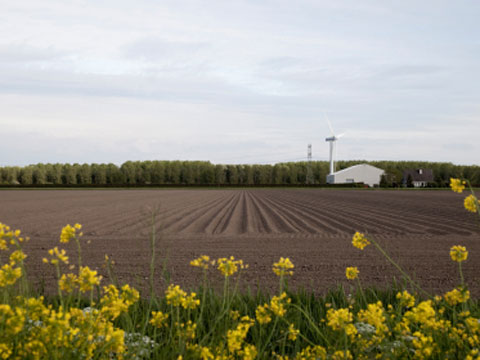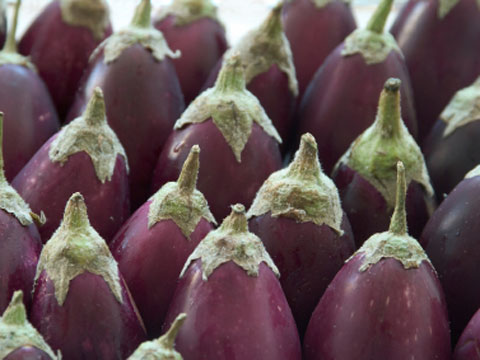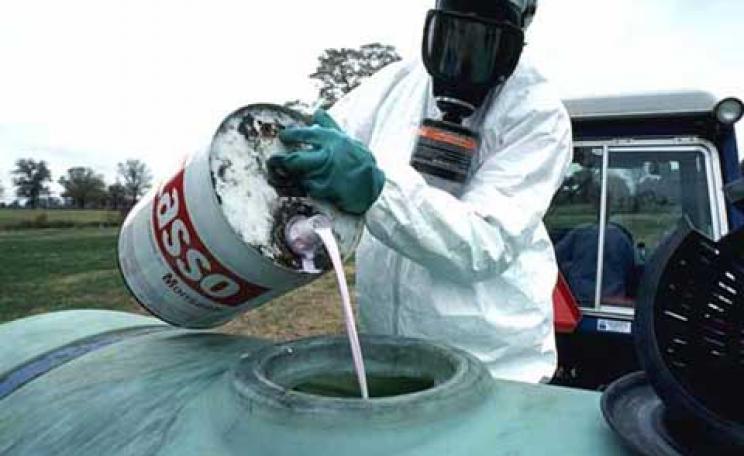How the five biotech giants have bought up smaller seed companies over the past decade (click to enlarge)
Since the mid-1990s just five biotech giants - Monsanto, Syngenta, Bayer, Dow and DuPont - have bought up more than 200 other companies between them to dominate our access to seeds.
Philip Howard from Michigan State university, who has produced a unique visual to illustrate this growing concentration of power in the hands of a few companies, says the takeover of the seed market has been 'dramatic' and that it is getting harder for farmers to find alternatives.
In the US for example, where 90 per cent of the soybeans grown are genetically-modified varieties, many conventional farmers have had difficulty obtaining non-genetically modified seeds to plant.
Howard says the increasing power of seed companies is 'incompatible' with renewable agricultural practices such as saving and replanting seeds. He says one solution to restricting their control would be through banning the practice of granting patents on seeds, plants and genes.
A patent gives a company exclusive rights to sell and develop a new invention. In the case of patents on plants and genes it grants them temporary monopolies and bans farmers from saving seeds, forcing them to buy new seeds from the company each year or pay a license to use patented seeds they have saved.
Howard and others argue that 'excessive seed patenting' by the biotech giants is allowing them to control a large number of seeds and leading to an increase in seed prices and a decrease of seed choices for farmers.
The groundbreaking IAASTD report in 2008, conducted by 400 scientists from around the world, criticised patents for driving up costs and restricting experimentation by farmers in developing countries.
A report, 'Future of seeds and food', published last year by a coalition of campaign groups, including Greenpeace, called for an end to patents on seeds to halt the domination of biotech giants like Syngenta. It says only bigger seed companies can afford to apply and enforce a patent.
'Patents exacerbate genetic erosion as they promote monoculture by hindering the development of new seed varieties. In sum, the possible, long term consequences of patents are control of the whole food chain by a few companies,' said the report.
'What is needed most is a clear legal ruling that exempts seeds and farm animals from patent protection.'
Useful links
Visualizing Consolidation in the Global Seed Industry: 1996–2008
Download the graphic as a pdf
 |
| READ MORE... | |
 |
COMMENT Monsanto's philanthropy How do you get your GM crops and herbicides into countries that don't want and can't afford them? Simple - you just wait for a crisis, and offer a helping hand... |
 |
NEWS Biotech industry plays down discovery of GM crops surviving in the wild GM seed manufacturers claim that genetically-modified crops are not likely to survive in wild, but US researchers have found GM plants surviving for at least two generations |
 |
NEWS India bans planting of first GM food crop Campaigners welcome decision to put on hold cultivation of genetically modified (GM) aubergine crop, Bt Brinjal, until 'safety of product' established |
 |
HOW TO MAKE A DIFFERENCE Don't buy seeds; swap them You can't buy a seed unless its strain has been expensively registered. But you can swap them with fellow gardeners, helping food growing and biodiversity to thrive |
 |
NEWS Bayer clamps down on GM rice protest in India Campaigners in India are facing charges including trespassing and criminal intimidation following a protest last month against genetically modified rice being trialled by Bayer BioScience |








